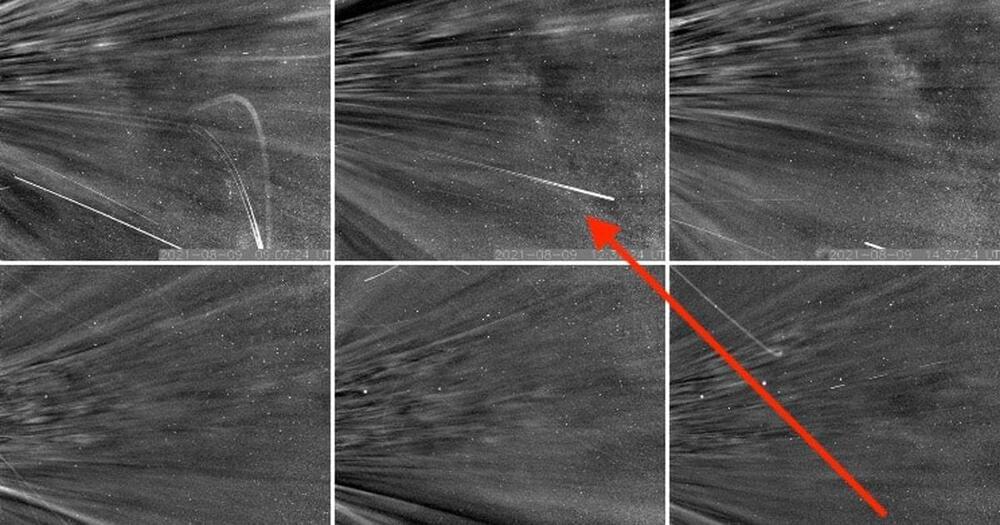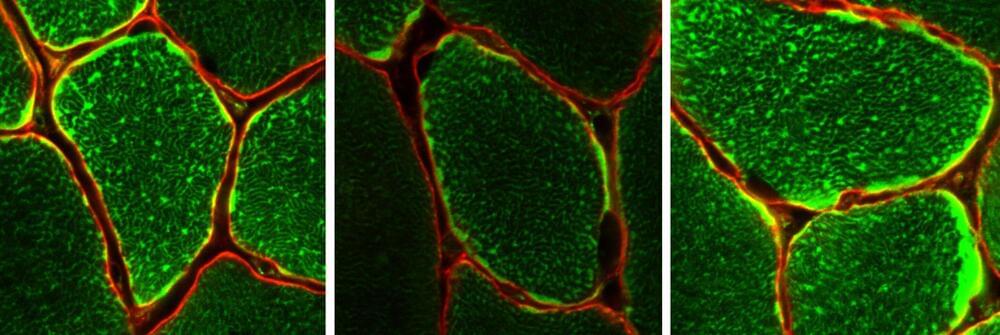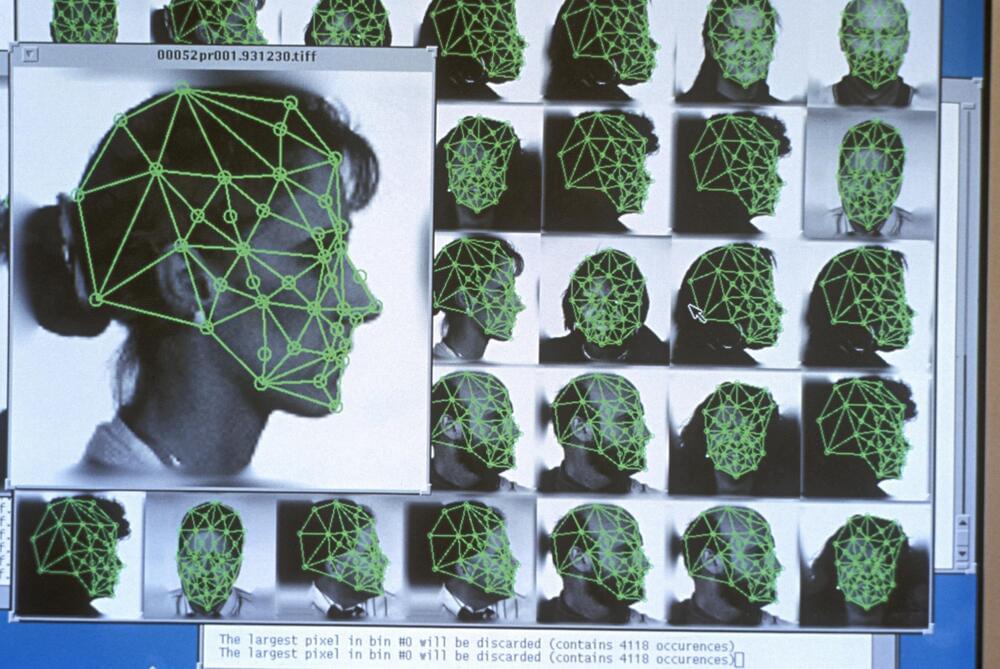This is the closest encounter between our species and the Sun ever.
NASA announced that the Parker Solar Probe went into the Sun’s atmosphere, the closest encounter with our home star.


Officials from IBM and Samsung announced at this year’s IEDM conference in San Francisco a collaboration on a new chip design that adds transistors vertically on a chip. As part of their announcement, they suggested that their vertical transport field effect transistors (VTFET) could double the speed of processor chips, or alternatively, reduce the power they use by up to 85 percent.
Since the beginning of digital technology, processing chips have been made by placing tiny transistors on a chip and connecting them. Over time, engineers have placed increasingly more transistors on chips that have remained roughly the same size—adhering, generally, to Moore’s Law, which states that the number of transistors on a chip should double every year. Engineers have known for a long time that there are limits to Moore’s Law—eventually, it would become impossible to add even one more transistor, much less double the number that are there.
So researchers are looking for other ways to make chips. But in the meantime, engineers continue to look for ways to add more transistors to conventional chips. In their announcement, IBM and Samsung have explained that they are taking steps to begin designing chips that can expand vertically. In a practical sense, the move was inevitable. As an analogy, when towns grew too big to be efficient, engineers began making buildings taller, essentially turning 2D towns into 3D cities. Officials and engineers at IBM and Samsung (and doubtless other corporations, such as Intel) suggest that now is the time to begin doing the same with microprocessors.
Here are some of the most amazing advancements in fabric technology and smart fabrics.
Chain mail-based fabric for smart exoskeletons
Hauberks, or chain mail shirts, were used in the Middle Ages, but they’ve certainly gone out of style, right?
Wrong. They’ve only transformed into something else. In 2021, engineers at the California Institute of Technology (Caltech) and the Nanyang Technological University (NTU) in Singapore created a chain mail-like material that goes from soft to stiff on command, bearing a load of 50 times its own weight when rigid.
The new zinc batteries are made up of electrodes that are screen-printed onto both sides of a sheet of hydrogel-reinforced cellulose paper. A layer of gold thin foil is coated on the electrodes to increase the conductivity of the battery. The battery is about 0.4mm thick, which is roughly the thickness of two strands of human hair.
Impressively, once the battery has reached the end of its lifespan, it can be buried in soil, where it will break down completely within a month.
The NTU researchers, who outlined their findings in the journal Advanced Science 0, demonstrated how a 1.5 in x 1.5 in (4 cm x 4 cm) square printed paper battery could power a small electric fan for up to 45 minutes. The researchers emphasized the fact that bending the battery did not interrupt the supply of power to the fan.
Having completed sea trials, it will now have its combat system activated.
Back in December of 2017, we brought you news of the U.S. Navy’s stealth destroyer the U.S.S. Monsoor breaking down during sea trails. At the time, we asked the question if this event would spell the end for Zumwalt-class destroyers?
It seems the Zumwalts are alive and well with the U.S. Navy’s third and final Zumwalt-class ship, the U.S.S. Lyndon B. Johnson, recently completing basic sea trials, according to 1945. This means that the massive ship will now have its combat system activated.
Zumwalt-class destroyers are top-of-the-range warships with advanced electrical generation systems. These systems power the ship’s engines, electronics, weapons, and propulsion systems.
Each Zumwalt-class destroyer comes with an Integrated Power System. These generate up to 80 megawatts of power and have been included with the expectation that the ships will be equipped with a new generation of power-hungry weapons such as electromagnetic railguns and perhaps even lasers.
Full Story:
Two different versions of the 35-meter-wide subsonic parachute flew perfectly.
The European Space Agency (ESA) completed the first successful high-altitude drop test of the ExoMars mission parachute, which will be the largest to ever fly on Mars, a press statement reveals.
The first and second stage parachutes have now both flown this year, meaning the ExoMars Rosalind Franklin rover mission is on course to launch for the Red Planet in Sept. 2022.
ExoMars mission is ‘on the road to launch’ The latest high-altitude drop tests took place in Oregon on Nov. 21 and Dec. 3 as part of a series of parachute tests aimed at ensuring the safe landing of the Exomars rover aboard the Kazachok lander, which is currently scheduled for some time in June 2023. The 35-meter-wide subsonic parachute will be the second parachute to deploy during the ExoMars descent modules final moments before touchdown. Two different versions of the 35-meter subsonic parachute were tested, with one developed by European firm Arescosmo, and the backup by U.S.-based Airborne Systems.
“Both parachutes deployed and flew beautifully,” said Thierry Blancquaert, ESA Exomars program team leader. “We maximized the lessons learned from all previous tests and with this double success following the impressive first stage parachute deployment earlier this year, we’re really on the road to launch. We have demonstrated we have two parachutes to fly to Mars.”
Full Story:
And it can allegedly survive a ‘once-in-10,000-years weather event’.
A safe reactor is a seaworthy reactor.
Or at least, it should be.
China claims its floating nuclear reactors, which will power off-shore oil rigs, can withstand “once-in-10,000-year” storms, according to an initial report from The South China Morning Post. That means hurricane-force winds, and more. To test its resilience, marine engineers subjected a model of the newly designed 60-megawatt reactors to strong winds and dangerously powerful undercurrents.
While strong storms are uncommon in the Bohai Sea, where the reactors will be used, the consequences of an accident would be so great that failure simply isn’t an option. “The ship body must not capsize under any circumstance,” said the researchers, according to the report.
Full Story:

Referring to Tesla’s Autopilot and Full Self Driving features.
Elon Musk has claimed that no other CEO cares as much about safety as he does in an interview with Financial Times.
In the year that has seen his private wealth balloon like never before, Musk has also been showered with titles, beginning with the richest person in the world and more recently, the person of the year by Time Magazine. The Time accolade is probably one of the many titles Musk will receive as he embarks on his mission to send humanity to Moon with his space company, SpaceX.
Before we get there though, there are some issues with his other company Tesla that needs addressing. The company’s short history is peppered with incidents that have risked human lives as it pushes the boundaries of autonomous driving. The company offers features called Autopilot and Full Self-Driving (FSD) which are still in beta stages and have been involved in accidents. In August, this year, the U.S. Department of Transportation’s National Highway Traffic Safety Administration (NHTSA) launched an investigation into the Autopilot feature that involves 750,000 Tesla vehicles.
Speaking to FT, Musk said that he hasn’t misled Tesla buyers about Autopilot or FSD. “Read what it says when you order a Tesla. Read what it says when you turn it on. It’s very, very clear,” said Musk during the interview. He also cited the high ratings Tesla cars have achieved on safety and also used SpaceX’s association with NASA to send humans into space to highlight his focus on safety. He also went a step further to say that he doesn’t see any other CEO on the planet care as much about safety as he does.
Although Musk is spot on about the high safety ratings of the cars and even NASA’s faith in SpaceX to ferry its astronauts, the Tesla website does not give the impression that the Autopilot or FSD is in beta and cannot be completely relied upon. Rather a promotional video even goes on to claim that the person in the driver’s seat is only for legal reasons and does not even have his hands on the steering wheel at all times, a requirement for enabling Autopilot. according to Tesla’s own terms.
Full Story:

Monash University, Australia scientists have discovered an enzyme that is key to why exercise improves our health. Importantly this discovery has opened up the possibility of drugs to promote this enzyme’s activity, protecting against the consequences of aging on metabolic health, including type 2 diabetes.
The proportion of people worldwide over 60 years old will double in the next three decades and by 2031, more than six million Australians will be over 65 years old. The incidence of type 2 diabetes increases with age so this aging population will also result in an increased incidence of the disease globally.
One of the main reasons for the increased prevalence of type 2 diabetes with age is the development of insulin resistance, or an inability for the body to respond to insulin, and this is often caused by reduced physical activity as we age.

Controversial facial recognition company, Clearview AI, which has amassed a database of some 10 billion images by scraping selfies off the Internet so it can sell an identity-matching service to law enforcement, has been hit with another order to delete people’s data.
France’s privacy watchdog said today that Clearview has breached Europe’s General Data Protection Regulation (GDPR).
In an announcement of the breach finding, the CNIL also gives Clearview formal notice to stop its “unlawful processing” and says it must delete user data within two months.